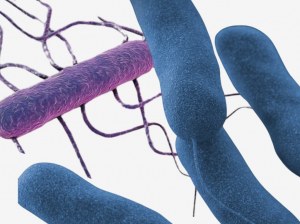Innovative Testing Methods for Listeria and Legionella

Fast and accurate detection of Listeria and Legionella is crucial for public health, with advanced testing methods playing a key role in preventing outbreaks and protecting vulnerable groups.

Public health risks from microbial pathogens, including foodborne and waterborne diseases, present significant challenges to both individuals and healthcare systems worldwide (Mather et al., 2024). Among these, Listeria monocytogenes and Legionella species are of particular concern due to their potential for causing severe illness, especially in immunocompromised individuals (Gartley et al., 2022; Ramírez-Castillo et al., 2015). As such, efficient tools that enable rapid detection are essential for managing infections. This article highlights two technologies that have emerged as vital tools in screening, preventing and monitoring these infections: the Listeria Test (anti-LLO IgG Immunoassay) to screen for the presence of anti-listeriolysin O antibodies and as an aid in the diagnosis of listeria infection in people and especially in pregnant women. and the Legionella water testing method for the control of the presence of Legionella in water is an important tool of preventing and monitoring.
Listeria Test: Anti-LLO IgG Immunoassay 
Listeria monocytogenes is a food-borne bacterium, responsible for severe infections in both animals and humans. Ingestion of contaminated food causes an infection, named listeriosis, which affects especially immunocompromised patients, new-borns and pregnant women and is characterized by a variety of severe syndromes, such as encephalitis, meningoencephalitis, septicemia and abortion.
Listeriolysin O (LLO), is the major virulence factor produced by L. monocytogenes. The detection of anti-LLO antibodies in humans has been proven to be particularly useful for listeriosis diagnosis especially when bacteria cannot be isolated from clinical specimens, owing to the intermittent presence in blood or the inaccessible foci of bacterial replication.
Listeria Test (Human Anti-LLO IgG Immunoassay) is a qualitative Enzyme-Linked Immunosorbent Assay (ELISA) for the detection of anti-LLO IgG in human serum and plasma. The kit is intended to be used to screen for the presence of anti-listeriolysin O antibodies and as an aid in the diagnosis of listeria infection in people including pregnant women.
Key benefits of the ListeriaTest include:
High Specificity: LLO is exclusively produced by Listeria monocytogenes, making the test highly specific for this pathogen.
Clear and Reproducible Results: The assay provides consistent results, regardless of operator experience, ensuring reliable diagnostics.
Ease of Use: The test is straightforward with minimal hands-on time, and all reagents are ready to use, ensuring stability and long shelf life.
Diagnostic Sensitivity: 86% diagnostic sensitivity ensures the reliable detection of human listeriosis.
Diagnostic Specificity: 100% diagnostic specificity, demonstrated through comparison with traditional culture methods.
Legionella Water Testing
Legionella pneumophila, the primary cause of Legionnaires' disease, is a significant public health concern. The bacteria are commonly found in water systems. When these systems aerosolize contaminated water, the inhalation of Legionella bacteria can lead to severe pneumonia. Hospitals and care facilities are particularly at risk, where vulnerable patients may contract infections.
The Legionella water testing method offers a rapid, high-performance solution for detecting and quantifying both Legionella spp. and L. pneumophila in water samples. This test is based on real-time PCR technology, which allows for the rapid and precise identification of Legionella DNA. By employing the DI-Check Analysis Software, results are automatically interpreted, ensuring high accuracy and reducing the potential for human error.
Key benefits of the Legionella water testing include:
Speed: The entire process, from sample collection to result generation, takes less than 4 hours, providing timely information for outbreak control and prevention.
High Performance: The test has been validated for use with water samples from diverse environments.
Reliability: The test adheres to standards connected to Reference Material and is ISO/TS 12869 compliant, ensuring maximum accuracy in Legionella detection.
Flexibility: The test allows for the detection and quantification of both Legionella spp. and L. pneumophila simultaneously, making it highly versatile for various environmental monitoring needs.
Convenience: This complete solution includes sample preparation and real-time PCR analysis, simplifying the workflow and reducing the need for specialized skills.
The need for rapid and reliable pathogen detection is critical for safeguarding public health. The Listeria Test and Legionella water testing represent two cutting-edge technologies that enable early detection and control of two major infectious threats: listeriosis and Legionnaires' disease.
With its ability to detect the presence of anti LLO IgG antibodies, the Listeria Test (Human Anti-LLO IgG Immunoassay) gives an early and specific result for screening and prevention purposes. The legionella method has been used for over several years to monitor Legionella demonstrating to be a valuable tool for water testing. These tests contribute significantly to public health surveillance and infection prevention.
References
Mather, A.E., Gilmour, M.W., Reid, S.W. and French, N.P., 2024. Foodborne bacterial pathogens: genome-based approaches for enduring and emerging threats in a complex and changing world. Nature Reviews Microbiology, 22(9), pp.543-555.
Ramírez-Castillo, F.Y., Loera-Muro, A., Jacques, M., Garneau, P., Avelar-González, F.J., Harel, J. and Guerrero-Barrera, A.L., 2015. Waterborne pathogens: detection methods and challenges. Pathogens, 4(2), pp.307-334.
Gartley, S., Anderson-Coughlin, B., Sharma, M. and Kniel, K.E., 2022. Listeria monocytogenes in irrigation water: An assessment of outbreaks, sources, prevalence, and persistence. Microorganisms, 10(7), p.1319.

